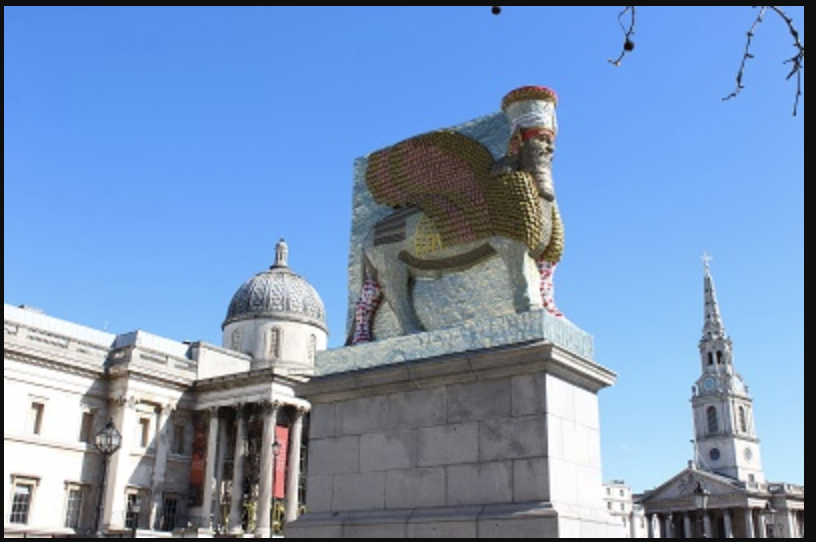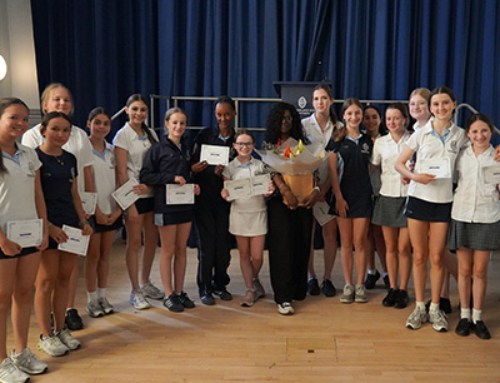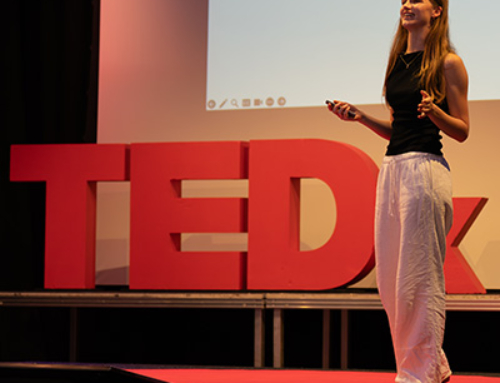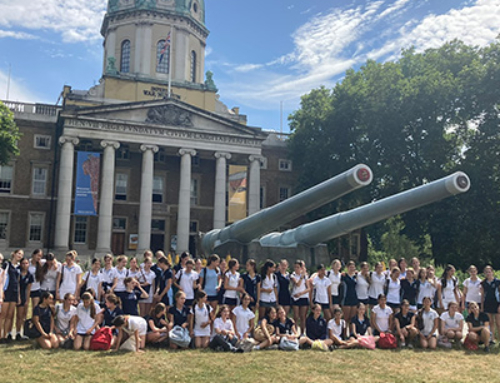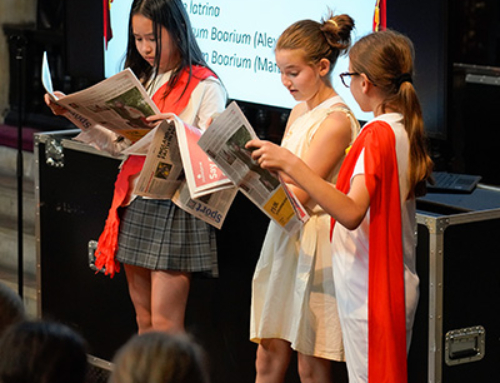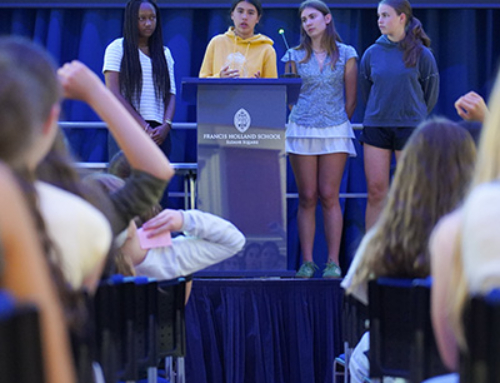This week, Ms Carr-Gomm looks at Michael Rakowitz’s The Invisible Enemy Should not Exist.
“On a highly topical note, I thought we should step outside the National Gallery, and well be able to visit it again soon, and look at the sculpture on the Fourth Plinth in Trafalgar Square.
Michael Rakowitz, The Invisible Enemy Should not Exist, 2018, 14 foot long, Fourth Plinth, Trafalgar Square,
The Fourth Plinth is found in the north west corner of Trafalgar Square which is named after the decisive naval battle in 1805 when Horatio Nelson defeated Napoleons fleet. Subsequently, Britain had no rival at sea and was able virtually unhindered to expand the Empire and rule over almost a quarter of the worlds population. Not far away is Waterloo Station, named after the decisive military battle in 1815 when Napoleons army was finally defeated and it is where the Eurostar originally arrived in London. I wonder if the French feel that we are somewhat hostile neighbours and is it time to change their names?
The square was laid out in the 1830s and 40s to celebrate Britains supremacy and the statuary continues the theme: Nelson stands on his massive column above four lions made from the bronze of captured French canon; on the south of the square are two leaders of the British army in India and King George IV lords it over the square on his horse. For 150 years the Fourth Plinth stood empty until a commission was set up to invite artists to submit their ideas. Given that it is no longer appropriate to honour military leaders and that the square is now a place of protests and demonstrations, artists have used this opportunity to voice their concerns about colonialism, feminism, religion, capitalism and other political issues with a work that is temporarily in place.
Rakowitzs statue on the Fourth Plinth now is of a lamassu, an ancient Mesopotamian being with a winged body of a bull and a serene human head. It is a replica of the benign stone lamassu that guarded the entrance to Nineveh, near Mosul in northern Iraq, which was made in about 700 BC and reduced to rubble by ISIS in 2015. It is made of over 10,000 brightly coloured empty date syrup cans, a reference to the Iraqi industry that has been almost wiped out by wars and also to the Arabic proverb a house with a date palm will never starve. Rakowitzs The Invisible Enemy Should not Exist is a project he started in 2003 and he hopes, rather ambitiously, to reconstruct the 7,000 objects from the National Museum of Iraq lost to looting and wars: 17 years later in England, his work is just as resonant is it not?”


